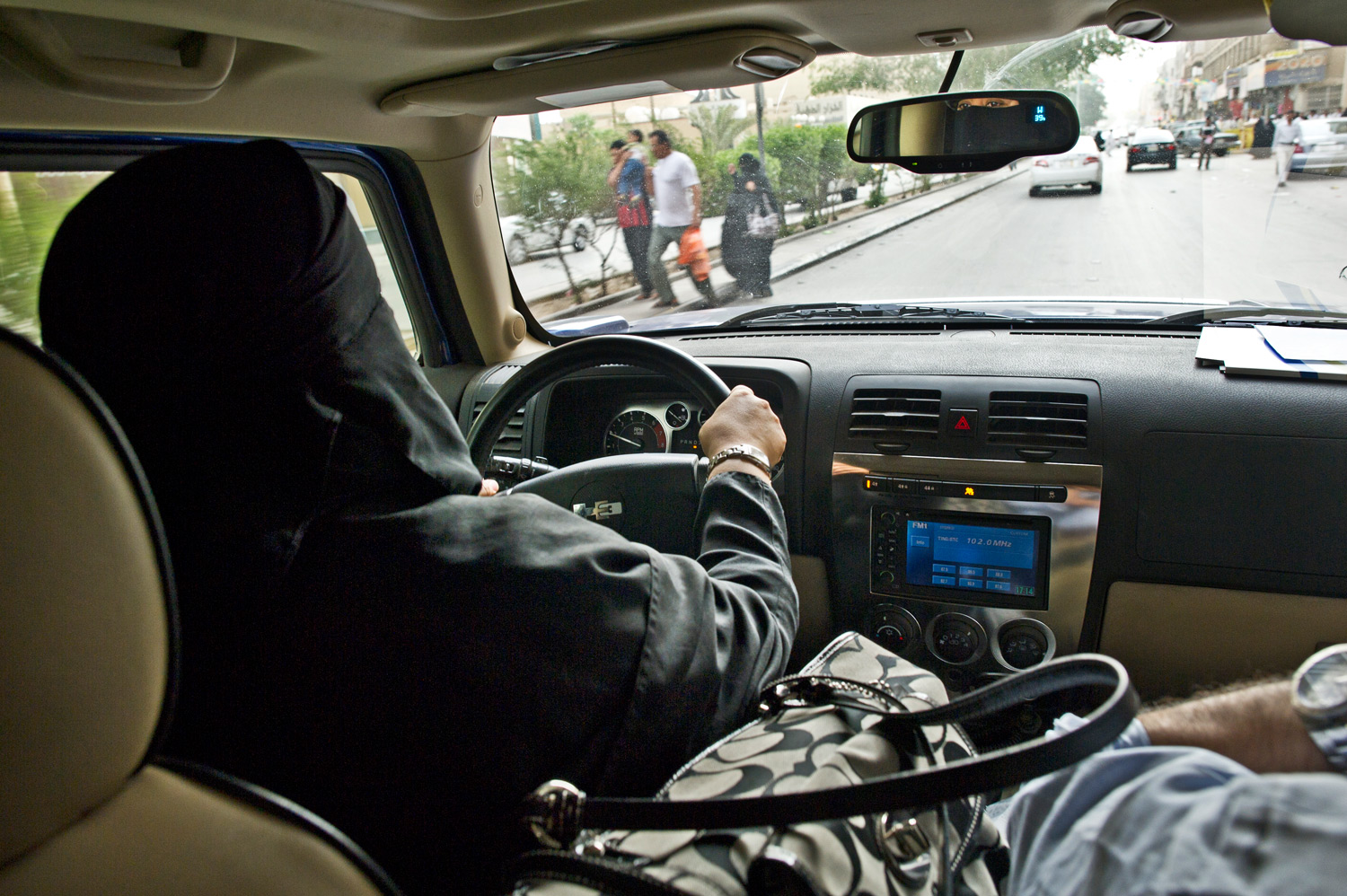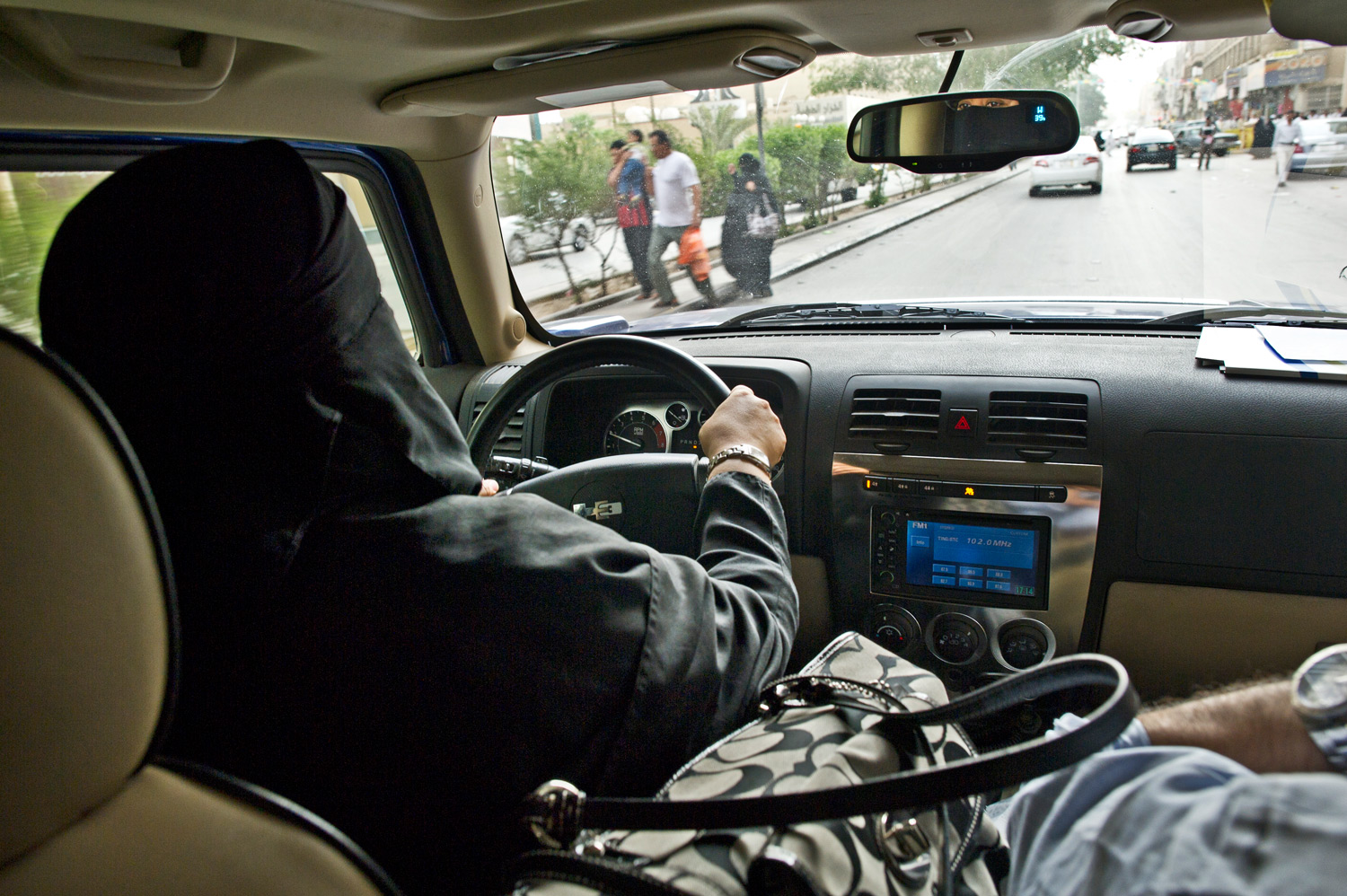
The beginning of the trip was uneventful. I tried to keep my camera discreetly in my lap and shoot the occasional frame, so as to not draw attention to us. We rode through Friday afternoon traffic, attracting some double takes and a few stares, but overall much less reaction than I would have anticipated. Her eyes, all that could be seen from underneath her all-encompassing hijab, darted in and out of the rear view mirror.
We coasted along King Fahd Road in Riyadh. The traffic seemed to grow more dense by the minute. She was nervous and her husband was giving her directions. “Don’t change lanes, slow down, you are going too fast!” he said. Then, turning to me in the back seat, he declared proudly, “She’s a good driver!”
The backseat driving made me smile—so universal between husbands and wives, no matter where in the world you are.
Given the longstanding prohibition against women drivers, I wondered if the police would stop us. I flashed back to the cramped prison cell in Sirte, where I was held by the Libyan government in March along with three male colleagues from the New York Times. There we were splayed out on soiled foam mattresses, a bottle of urine in the corner of the cell, a box of dates on the floor. I was sure the Saudi prison would be cleaner.
I took the discs out of my camera, hid them in my bra, and put the camera back into my backpack.
Lynsey Addario is a freelance photographer based in Delhi on assignment for TIME in Saudi Arabia. She photographed Maternal Mortality: The Story of Mamma Sessay in May 2010.

More Must-Reads from TIME
- Cybersecurity Experts Are Sounding the Alarm on DOGE
- Meet the 2025 Women of the Year
- The Harsh Truth About Disability Inclusion
- Why Do More Young Adults Have Cancer?
- Colman Domingo Leads With Radical Love
- How to Get Better at Doing Things Alone
- Michelle Zauner Stares Down the Darkness
Contact us at letters@time.com